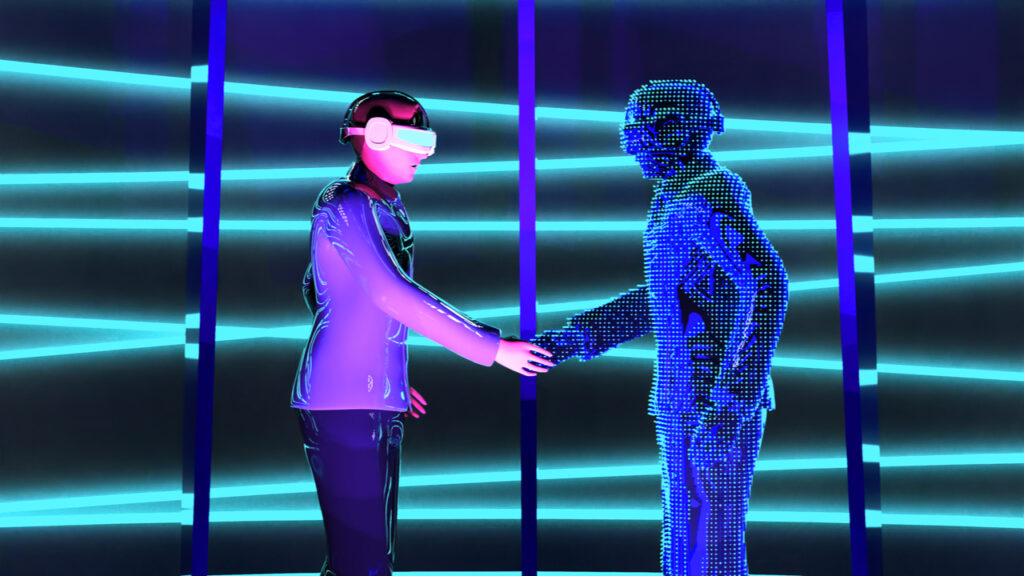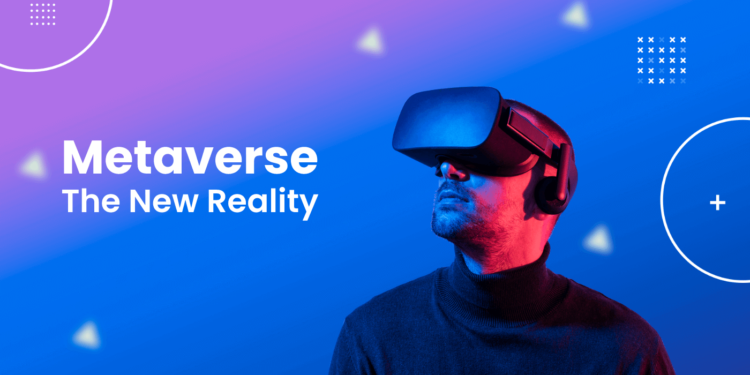The Metaverse is a virtual reality setting that includes various internet features and services.
You can anticipate the Metaverse to offer social areas, video games, and new commercial prospects, among other things. Since the cosmos is constantly expanding, there are several cutting-edge investing options.
The Metaverse experience has improved greatly in recent years due to the rapid advancement of virtual reality technology.
In this article, we’ll look into why it’s becoming more popular with investors and consumers.
What Is Special About the Metaverse?
A brand-new experience called the Metaverse seeks to provide people a different way to use the internet. It accomplishes that by utilizing virtual reality technology.
In other words, the Metaverse enables users to explore the internet in previously unimaginable ways.
Remotely meeting individuals
You can meet new people or old friends through the Metaverse more readily than ever.
With the use of avatars that can resemble you in real life, remote connections feel more genuine.
Additionally, when paired with virtual reality technology, avatars and virtual worlds virtually give the impression that you are true with your old friends, family, or new acquaintances in any of the worlds you met them in.
Online gatherings can be planned in the virtual world without being constrained by the restrictions of the conventional internet.
Immersiveness
The Metaverse, in conjunction with virtual reality technology, offers you an unmatched level of immersion when you’re browsing the internet, viewing videos, or engaging with other people.
Your favorite real-world locations may be recreated in the Multiverse, allowing you to visit and interact with them as if you were actually there.
Or, among the tens of thousands of virtual worlds, you might explore, you might discover new favorite locations.
From the convenience of your home, all of this.
New commercial possibilities
New commercial strategies and marketing techniques have already emerged from the metaverse. There are still a lot of possibilities to explore, though.
However, users of the Metaverse can engage with digital representations of actual goods, take part in virtual world demonstrations of real-life experiences, and even access exclusive goods and services that are unavailable elsewhere.
The real estate market in the Metaverse is large, and several major international corporations have made significant investments there.
The management of concerts and festivals, the hosting of art galleries, or even the leasing of real estate are other investment prospects.
Learning
The Covid-19 outbreak forced many educational systems across the world to switch entirely to digital. The Metaverse is exceptional in that it makes teaching and learning possible in a fully digital environment.
The Metaverse is already changing how education is delivered to students. The teacher determines what the kids see in a classroom.
Are you referring to the Giza Great Pyramid? Bring the pupils there. Are we discussing Jupiter and its moons? Take a journey through space.
Virtual reality technology in education results in engaged students who have rich, immersive learning experiences.
Decentralization
Cryptocurrencies are used in Metaverse transactions. Additionally, it makes use of blockchain technology to guarantee the security and privacy of its consumers.
NFTs are linked to the Metaverse as well. NFTs serves as a symbol of digital object ownership.
The drive to decentralize the Metaverse is crucial because it ensures that the virtual internet will continue to be an area free from governmental control.
What happens to VR and the Metaverse after that?
While virtual reality technology can take you anywhere in the virtual world, they nevertheless have some restrictions.
While others, like Meta, the company that founded Metaverse and was formerly known as Facebook, are working to make the VR experience as realistic as possible.
These advancements include improved full-body tracking technology, the ability to physically react to interactions with virtual things, the ability to feel or smell anything you touch in the virtual world, and improved VR goggle technology.
Despite these restrictions, the immersiveness of today’s VR experiences is unmatched.
What is the current state of the metaverse?
The paradox of defining the metaverse is that you must define away the present for it to be the future. We already have MMOs, which are essentially full virtual worlds, online avatars, commerce platforms, digital concerts, video calls with people all over the world, and digital concerts. Therefore, there must be some aspects of these items that are novel in order to sell them as a fresh perspective of the world.
Spend enough time discussing the metaverse, and someone will always (and tiresomely) bring up fictional works like Ready Player One, which imagines a VR environment where everyone works, plays, and shops, or Snow Crash, the 1992 book that introduced the phrase “metaverse.” These stories serve as a creative reference point for what the metaverse—a metaverse that tech companies might actually sell as something new—could look like when combined with the general pop culture concept of holograms and heads-up displays (basically anything Iron Man has used in his last 10 movies).
In a sentence, mentally change “the metaverse” to “cyberspace.” 90% of the time, the meaning won’t be much altered.
Possibly more important to the concept of the metaverse than any particular technology is that kind of hype. Therefore, it should come as no surprise that proponents of NFTs, which are cryptographic tokens that, in a sense, function as certificates of ownership for digital goods, are also embracing the concept of the metaverse. Sure, NFTs are awful for the environment, and the public blockchains that the majority of them are built on have serious privacy and security issues. However, if a tech business can claim that they will hold the digital key to your Roblox virtual mansion, then boom.
Current Conceptions
It’s crucial to keep all of this in mind because, despite how alluring it may be to compare our current conceptions of the proto-metaverse to those of the early internet and assume that everything will improve and advance linearly, that is not a given. There is no guarantee that consumers will want to play poker with Dreamworks’ Mark Zuckerberg or hang around without legs in a virtual office, let alone that VR and AR technology will ever be as widely used as smartphones and PCs are now.
The idea of “the metaverse” has been a potent tool for repackaging outdated technology, exaggerating the advantages of new technology, and grabbing the attention of speculative investors in the months following Facebook’s relaunch. However, as everything from 3D TVs to Amazon’s delivery drones and Google Glass can attest, money pouring into a sector doesn’t necessarily signal a significant paradigm shift is just around the corner. The remains of unsuccessful investments can be found throughout the history of technology.
That does not imply that nothing exciting is in the works. Cheaper than ever, VR headsets like the Quest 2 are slowly weaning themselves off of pricey desktop or console systems. The creation and design of video games and other virtual environments is becoming simpler. And personally, I think photogrammetry advancements—the method of producing digital 3D objects from still images or moving pictures—are an absolutely exciting tool for digital artists.
However, the tech sector as a whole is somewhat dependent on futurism. Selling a phone is fine, but it’s more profitable to sell in the future. It’s possible that any actual “metaverse” would consist primarily of what we still refer to as the internet, along with some fantastic VR games and virtual avatars used in Zoom calls.
Conclusion
Virtual reality technology and the Metaverse go hand in hand. The Metaverse’s experiences will advance along with virtual reality technology.
However, the VR experience that is currently accessible is already worthwhile.
The Metaverse and virtual reality technologies work together to create many things that are genuinely unique. In the digital age, this mix changes how things like learning, relationships, and even business occur.
The Metaverse might offer the experience you’re looking for, whether you’re seeking a business opportunity or just want to relax or have fun.






